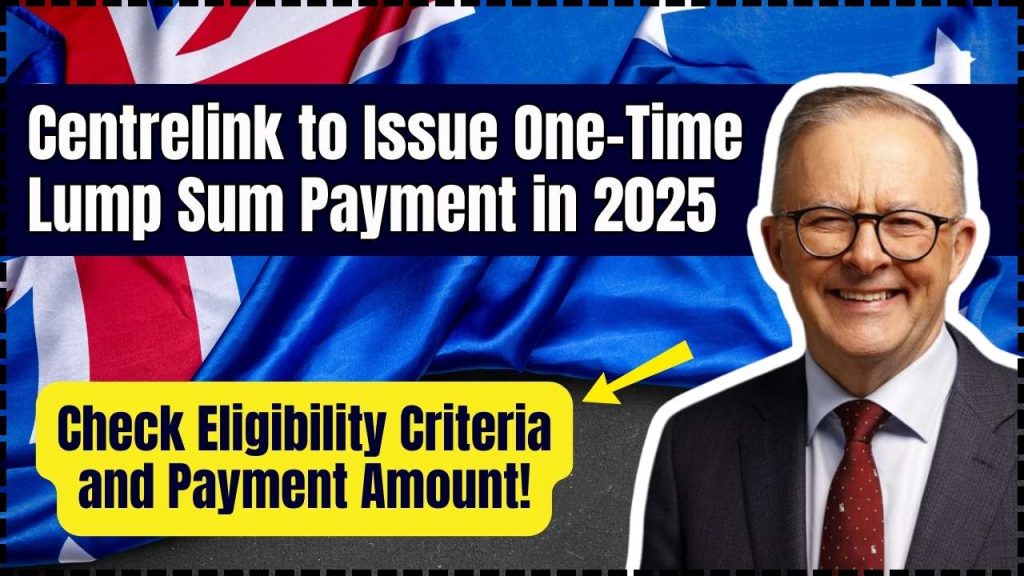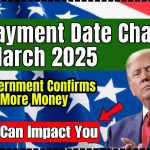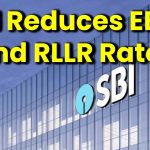Centrelink to Issue One-Time Lump Sum Payment in 2025: In 2025, Centrelink is rolling out a significant one-time lump sum payment initiative aimed at supporting Australians amid rising financial pressures. The government has recognized the ongoing challenges caused by inflation, high utility bills, housing costs, and everyday essentials. These special payments are part of a broader social safety net effort to uplift low- and middle-income Australians and ensure that no one is left behind during a financially uncertain time.

Understanding who qualifies, how much you can receive, and when the money will arrive is crucial for beneficiaries and financial planners alike. This guide will walk you through the key programs available under the 2025 Centrelink lump sum initiative, providing clear, step-by-step instructions, official links, and practical advice for maximizing your entitlements.
Centrelink to Issue One-Time Lump Sum Payment in 2025
| Key Detail | Information |
|---|---|
| Payment Name | One-Time Lump Sum Cost of Living Payments |
| Amount | Ranges from $255 to $5,000 (based on category) |
| Eligible Groups | Age Pension, JobSeeker, DSP, Parenting Payment, Youth Allowance, Carers, Students |
| Distribution Period | January to May 2025 (varies by payment type) |
| Application Needed? | No, payments are automatic for eligible individuals |
| Official Resource | Services Australia – Centrelink |
The Centrelink one-time lump sum payments in 2025 offer a meaningful financial boost for Australians navigating today’s economic challenges. Whether you’re a student, pensioner, jobseeker, or carer, these payments are designed to give you a chance to breathe easier.
What Is the Centrelink One-Time Lump Sum Payment?
The Centrelink 2025 one-time lump sum payment scheme is part of the Australian Government’s updated social support strategy. These payments are designed to relieve pressure on households most vulnerable to the rising cost of living. As groceries, fuel, electricity, and rent prices soar, the government is distributing targeted cash injections to help individuals and families manage day-to-day costs without taking on debt.
The program encompasses several different types of payments:
- $1,144 Cost of Living Boost
- $255 Cost of Living Payment
- $750 Special Payment
- $5,000 Centrelink Cash Boost
Each payment targets different groups depending on their unique financial situations and needs.
Breakdown of Each 2025 Centrelink Lump Sum Payment
$1,144 Cost of Living Boost
The $1,144 payment is the most comprehensive and widely distributed boost. It’s tailored for Australians who rely heavily on Centrelink benefits for basic living expenses.
Eligibility Includes:
- Age Pension recipients
- Disability Support Pensioners (DSP)
- Carers receiving Carer Payment or Carer Allowance
- JobSeeker Payment recipients
- Holders of a Commonwealth Seniors Health Card
- Students receiving Youth Allowance, Austudy, or ABSTUDY
Payment Schedule:
- Payments began rolling out in March 2025
- Direct deposits into linked bank accounts
- Automatically processed if you were eligible as of February 15, 2025
This payment can provide real breathing space for retirees, disabled Australians, caregivers, and low-income students trying to meet essential needs.
$255 Cost of Living Payment
The $255 payment is a tax-free amount offered to a broader range of recipients.
Recipients Include:
- All Centrelink payment recipients
- Health Care Card holders
- Commonwealth Seniors Health Card holders
Distribution:
- Disbursed in January 2025
- Automatically added to your bank account if you received eligible benefits during the qualifying period
Good to Know:
- Can be received in addition to other lump sum payments
- Does not count as income for Centrelink purposes
$750 Special Centrelink Payment
This payment supports individuals and families who face extreme financial stress or instability.
Eligible Beneficiaries:
- JobSeekers
- Single and partnered Parenting Payment recipients
- Youth Allowance recipients (including those in training/apprenticeship programs)
- Carer Payment beneficiaries
Key Details:
- No application required
- Automatically distributed in March 2025
- Helps with urgent expenses like utility bills, school costs, and healthcare
This one-time payout serves as a financial cushion for households juggling several financial priorities.
$5,000 Centrelink Cash Boost
This high-value, one-time payment is rumored to assist Australians in transition or training phases.
Possible Eligibility Criteria (not officially confirmed):
- JobSeekers enrolling in certified skill development programs
- Australians relocating for employment opportunities
- Carers transitioning back to the workforce
Clarification Needed:
- As of April 2025, the $5,000 payment details have not been officially confirmed by Services Australia.
- It’s advisable to speak directly with a Centrelink representative or monitor Services Australia updates.
If confirmed, this will be a substantial financial push for Australians moving toward long-term self-sufficiency.
How to Check If You Are Eligible For One-Time Lump Sum Payment
Step 1: Log In to Your myGov Account
- Visit myGov and log in
- Link your Centrelink account if not already done
- Look under “Payments & Services” for messages or payment alerts
Step 2: Review Your Payment History
- Access the Payment and Claim section
- Filter transactions by date and look for January to May 2025 entries
Step 3: Contact Centrelink
- Phone: 132 300 (available Monday–Friday)
- Visit your local Centrelink Service Centre
- Use the Express Plus Centrelink App for quick checks
You can also contact the Financial Information Service (FIS) for free support to better understand your entitlements.
Why This Payment Matters in 2025
Australia is experiencing significant economic shifts:
- Inflation is at 4.1% according to the Australian Bureau of Statistics
- Household essentials are more expensive than ever
- Financial pressure is especially intense for seniors, students, and low-income families
By issuing lump sum payments instead of monthly increases, the government aims to give recipients flexibility. For example, a carer might use the lump sum to cover several months of medicine costs upfront, or a single parent might use it to replace broken appliances or buy school uniforms.
These targeted, timely injections help reduce dependence on credit cards or payday loans and can prevent spiraling debt.
Practical Advice for Beneficiaries
To make the most of these Centrelink lump sum payments:
- Double-check your contact details in your myGov and Centrelink profile to ensure payment delivery isn’t delayed.
- Beware of scams: Legitimate messages will come only through myGov or Services Australia.
- Budget ahead: Consider how the payment can ease long-term pressure rather than short-term spending.
- Speak with a Centrelink Financial Information Service (FIS) Officer to explore how lump sums may affect housing support or other supplemental payments.
- Keep records of your payment notifications for tax and accounting purposes, even though the payments themselves are tax-free.
Who Gets Australia’s $915 Parenting Payment? Check If You Qualify!
Australians to Receive $600 Centrelink Boost—Check Eligibility Now!
$2,587 Home Equity Access Scheme in Australia – Check Eligibility Criteria!
FAQs About Centrelink to Issue One-Time Lump Sum Payment in 2025
Q1: Do I need to apply for the $1,144 or $255 payments?
No. These are automatic payments for those who meet eligibility during the qualification window.
Q2: I didn’t receive any payment in March 2025. What should I do?
Check your myGov inbox, review your Centrelink payment history, or call 132 300 for assistance.
Q3: Are these payments taxable?
No. All 2025 Centrelink lump sum payments are tax-free and won’t impact your tax return.
Q4: Will receiving this payment lower my future Centrelink support?
Not at all. These payments are exempt from income tests and do not reduce your regular entitlements.
Q5: Can I qualify for multiple lump sum payments?
Yes, if you meet the criteria. For example, many Australians are eligible for both the $255 and $1,144 payments.
Q6: Is the $5,000 payment real or a rumour?
As of now, it is reported in media and government briefings but not yet listed on official websites.











